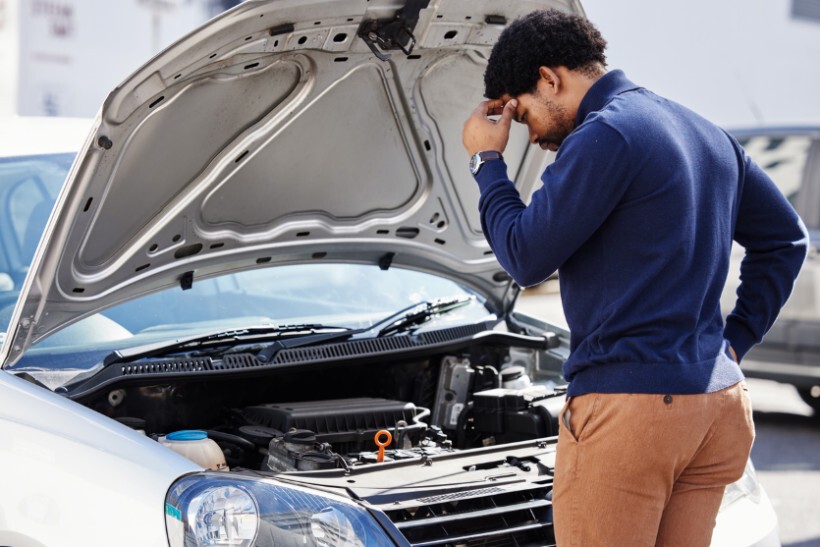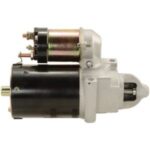It’s a common scenario for car owners: the check engine light illuminates on your dashboard, or perhaps you’ve noticed unusual noises or performance issues with your vehicle. In such situations, a car diagnostic test becomes essential to pinpoint the underlying problem. But a crucial question arises for budget-conscious car owners: how much does a diagnostic test cost for a car? Understanding the costs associated with this vital service is key to making informed decisions about your car maintenance and repair.
Car diagnostic tests are more than just a quick scan; they are a gateway to understanding your vehicle’s health. The cost of these tests can vary significantly, typically ranging from $20 to upwards of $400 or more. This range depends on several factors, including the service provider, the complexity of your vehicle, and your geographical location. While the initial expense might seem daunting, consider a diagnostic test as an investment in preventing potentially larger, more expensive repairs down the line. Identifying minor issues early can save you considerable money and stress in the long run.
Understanding Car Diagnostic Tests: More Than Just Reading Error Codes
To truly grasp the value and cost of a car diagnostic test, it’s important to understand what it entails. Modern vehicles are sophisticated machines equipped with onboard computers and numerous sensors monitoring everything from engine performance to brake function. When these sensors detect an anomaly, they often trigger the check engine light or other warning signals. A diagnostic test is the process of accessing and interpreting the data from your car’s computer system to understand these issues.
What is a Car Diagnostic Test?
A car diagnostic test is a systematic procedure that uses specialized electronic tools to communicate with your vehicle’s onboard computer. Mechanics connect diagnostic scanners to the car’s diagnostic port, typically located under the dashboard. This scanner retrieves trouble codes, which are essentially error messages stored by the car’s computer. These codes provide valuable clues about potential malfunctions within various vehicle systems.
While reading these codes is a crucial first step, a diagnostic test is more than just code retrieval. A skilled technician will analyze these codes in conjunction with other diagnostic procedures, such as visual inspections and component testing, to accurately pinpoint the root cause of the problem. This comprehensive approach is crucial for effective and efficient repairs.
What Does a Full Car Diagnostic Test Include?
A mechanic expertly utilizes a laptop-based diagnostic tool to assess engine performance under the hood of a vehicle. (Source: iStock)
A comprehensive car diagnostic test goes beyond simply checking for error codes. It delves into various critical systems of your vehicle to provide a holistic assessment of its condition. A full diagnostic test typically covers:
- Engine Performance: Evaluating engine efficiency, identifying misfires, and assessing overall engine health.
- Electrical System: Checking battery health, alternator function, wiring integrity, and identifying electrical faults.
- Sensor Analysis: Examining the functionality of various sensors throughout the vehicle, ensuring they are providing accurate readings.
- Transmission System: Assessing transmission performance, fluid condition (if applicable), and identifying potential issues within the gearbox.
- Braking System: Analyzing ABS (Anti-lock Braking System) functionality, brake pad wear sensor readings, and related components.
- Exhaust System: Checking for catalytic converter efficiency, oxygen sensor performance, and leaks in the exhaust system.
- Fuel Injection System: Evaluating fuel pressure, injector performance, and identifying issues related to fuel delivery.
- Throttle and Ignition Systems: Assessing throttle response, ignition timing, spark plug performance, and related components.
- Air Conditioning and Climate Control: Checking AC compressor function, refrigerant levels, and heating system performance.
- Airbags and Safety Systems: Verifying the functionality of airbags, seatbelt pretensioners, and other safety-related components.
It’s important to note that while a diagnostic test is incredibly helpful in narrowing down potential problems, it doesn’t always provide a definitive solution. It serves as a roadmap, guiding mechanics to the specific areas that require further manual inspection and testing to accurately diagnose and repair the issue.
Decoding Car Diagnostic Test Costs: What to Expect
The cost of a car diagnostic test isn’t fixed; it’s influenced by a range of factors. However, understanding typical price ranges can help you budget appropriately and assess the fairness of a quote.
Average Car Diagnostic Test Costs
| Type of Diagnostic Test | Cost Estimate |
|---|---|
| Basic Diagnostic Scan (Code Reading) | $20 – $75 |
| Standard Diagnostic Test (Comprehensive System Check) | $75 – $200 |
| Advanced/Specialized Diagnostic Test (Luxury/Performance Vehicles, Complex Issues) | $200 – $400+ |


These figures are estimates, and actual costs can fluctuate. A basic scan, which primarily involves reading error codes, is generally the most affordable option. Standard diagnostic tests, offering a more in-depth analysis of multiple systems, fall in the mid-range. For luxury or high-performance vehicles, or when dealing with complex, elusive problems, specialized diagnostic tests might be necessary, leading to higher costs due to the expertise and specialized equipment required.
Factors Influencing the Price of a Car Diagnostic Test
Several key factors contribute to the variation in car diagnostic test prices:
Location Matters
Geographical location plays a significant role in determining car diagnostic costs. Areas with higher costs of living and more competitive markets might see varying prices. Densely populated areas often have more auto repair shops vying for business, potentially leading to more competitive pricing. Conversely, in more remote or less competitive areas, prices might be slightly higher due to less competition and potentially higher operating costs for businesses.
Mechanic’s Expertise and Labor Rates
The experience and expertise of the mechanic or technician performing the diagnostic test directly impact labor rates, which are a significant component of the overall cost. Highly skilled and experienced mechanics, particularly those specializing in specific vehicle brands or advanced diagnostics, may command higher hourly rates. While this might translate to a slightly higher diagnostic cost, it often comes with the assurance of more accurate diagnoses and effective repair strategies.
Vehicle Make and Model Complexity
The make and model of your vehicle significantly influence diagnostic costs. Diagnosing issues in common, mass-market vehicles is generally more straightforward and less expensive. However, luxury cars, high-performance vehicles, and those with advanced technology often require specialized diagnostic equipment, software, and expertise. Mechanics working on these types of vehicles may need to invest in specific training and tools, which can be reflected in higher diagnostic fees. Furthermore, accessing diagnostic information on some luxury brands might require proprietary software or dealership-level tools, potentially increasing costs.
Type of Service Provider: Dealership vs. Independent Mechanic vs. Auto Parts Store
Where you choose to get your diagnostic test also affects the price.
- Dealerships: Dealerships typically have highly trained technicians specializing in specific vehicle brands and access to brand-specific diagnostic tools and software. Their diagnostic services might be more expensive due to higher overhead costs and specialized expertise.
- Independent Mechanics: Independent auto repair shops offer a broader range of pricing, often being more competitive than dealerships. The cost at an independent shop depends on their expertise, equipment, and shop location. Many independent shops are well-equipped to perform accurate diagnostic tests on a wide variety of vehicles.
- Auto Parts Stores: Some auto parts stores offer free basic diagnostic code scans, often as a customer service to encourage parts purchases. However, these free scans are typically limited to reading basic error codes and may not provide the in-depth analysis offered by professional mechanics. They are a starting point but not a substitute for a comprehensive diagnostic test when dealing with complex issues.
When Should You Invest in a Car Diagnostic Test? Recognizing the Right Time
Knowing when to get a car diagnostic test is as important as understanding the cost. Here are key scenarios where a diagnostic test becomes a worthwhile investment:
Check Engine Light Illumination: The Obvious Signal
A concerned driver inspects his car’s engine bay after noticing performance problems indicated by the check engine light. (Source: iStock)
The most common trigger for a diagnostic test is the illumination of the check engine light. This light is a signal from your car’s computer indicating that it has detected a problem within one of its monitored systems. While a check engine light can sometimes indicate a minor issue like a loose gas cap, it can also signal more serious problems that require immediate attention. A diagnostic test is crucial to decipher the meaning behind the check engine light and identify the specific issue.
Pre-Purchase Inspection of Used Cars: Ensuring a Sound Investment
Before purchasing a used car, a pre-purchase inspection, including a diagnostic test, is highly recommended. A diagnostic test can reveal hidden problems or potential issues that might not be immediately apparent during a visual inspection or test drive. This can save you from buying a vehicle with pre-existing mechanical or electrical faults, potentially saving you significant repair costs down the line.
Regular Maintenance and Preventative Care: Proactive Vehicle Health
Incorporating diagnostic tests into your regular vehicle maintenance schedule can be a proactive approach to car care. Preventative diagnostic tests can help identify minor issues or developing problems before they escalate into major repairs. Just like regular medical check-ups for humans, periodic diagnostic tests for your car can contribute to its longevity and reliability.
Suspected Vehicle Issues: Trusting Your Intuition
Even if the check engine light isn’t on, if you notice any unusual symptoms like strange noises, decreased fuel efficiency, rough idling, or changes in performance, it’s wise to consider a diagnostic test. These symptoms can be early indicators of underlying problems that a diagnostic test can help identify, even before they become severe enough to trigger warning lights.
Investing in Vehicle Health: The Value of a Diagnostic Test
While the question of “how much does a diagnostic test cost for a car” is important, it’s equally crucial to consider the value a diagnostic test provides. Think of it as an investment in your vehicle’s long-term health and your peace of mind. By accurately identifying problems early, diagnostic tests empower you to address issues promptly, prevent costly cascading failures, and maintain your car’s optimal performance and safety. Whether you choose a dealership, an independent mechanic, or utilize a basic scan at an auto parts store, understanding the cost and benefits of car diagnostic tests is essential for responsible car ownership.


